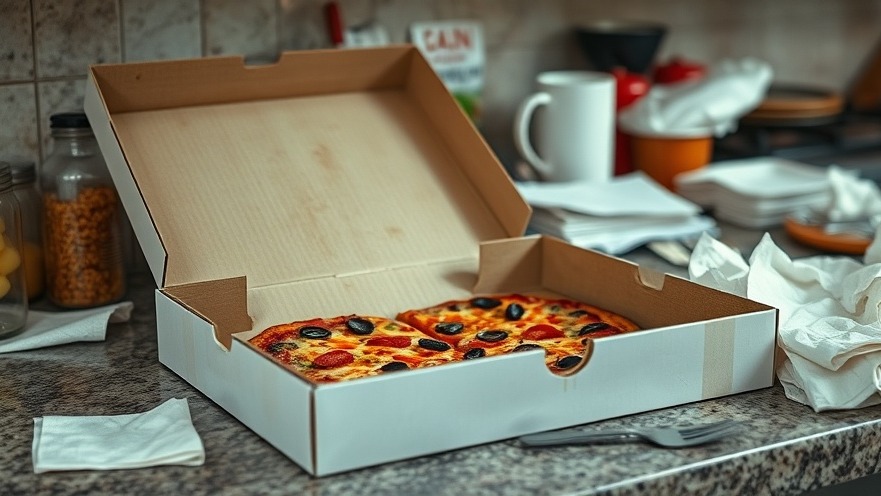
The Importance of Understanding Recycling Mistakes
In a world where environmental urgency is at an all-time high, conveying the significance of effective recycling practices is crucial. Recycling has emerged as a common eco-friendly habit, yet many of us remain unaware of the common mistakes that lead to contamination and inefficiency. The good news? Awareness is the first step towards improvement.
Common Recycling Mistakes People Make
Most people want to contribute positively to the planet, but sometimes we may unknowingly hinder our own efforts. Here are several prevalent recycling errors:
Greasy Cardboard: Many people toss greasy pizza boxes into recycling bins, believing they are doing the right thing. However, contaminated cardboard should not be recycled, as grease disrupts the recycling process. Instead, clean sections can be salvaged, while the greasy part should find its place in compost or general waste.
Tissues and Paper Towels: Often mistaken for regular paper, used tissues and paper towels are not recyclable. While they can be composted, they should generally be discarded with household waste to prevent contamination.
Many local governments, including those where I’ve engaged in community bin audits, emphasize the importance of being mindful of what goes into recycling bins. Engaging with local councils to understand specific recycling nuances in your area can make all the difference.
Why Understanding Recycling is Crucial for Travelers
Traveling frequently means interacting with different recycling systems and practices. For eco-conscious travelers and hospitality industry professionals, awareness of recycling rules varies regionally. Adapting your waste disposal habits while traveling can significantly impact local waste management systems and promote sustainability.
Tips to Enhance Your Recycling Game
Educate Yourself: Verify what’s recyclable in the area you are visiting. Each eco-system operates differently.
Use Reusable Products: Reduce reliance on single-use packaging, especially in the hospitality industry.
Composting: Embrace composting as a powerful alternative, turning organic waste into a resource rather than clogging landfills.
The Ripple Effect of Responsible Recycling
Each conscious decision impacts sustainability efforts. For eco-tourists, every action you take—from the packaging you bring on your journey to your disposal methods—can amplify or diminish your carbon footprint. Making small changes can yield significant benefits in promoting sustainable practices in tourism.
Create a Mindset of Sustainability
Incorporating sustainability into daily habits—like recycling—entails more than awareness; it requires active participation, especially in the hospitality sector. Consider adopting energy-efficient practices, exploring sustainable food services, and collaborating on strategies for reducing resource consumption.
Conclusion: A Call to Action
Ultimately, we must all play a part in our planet's well-being. By understanding recycling nuances and promoting effective habits, we can pave the way for a more sustainable future. Whether you're a frequent traveler or a hospitality professional, take charge and ensure every action contributes positively. Let's strive for a net-zero impact and become stewards of our environment.
 Add Row
Add Row  Add
Add 




Write A Comment